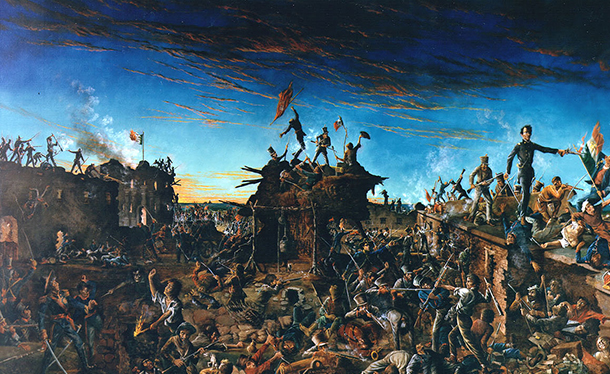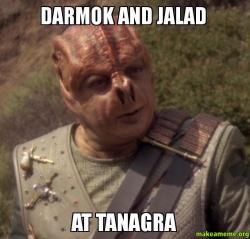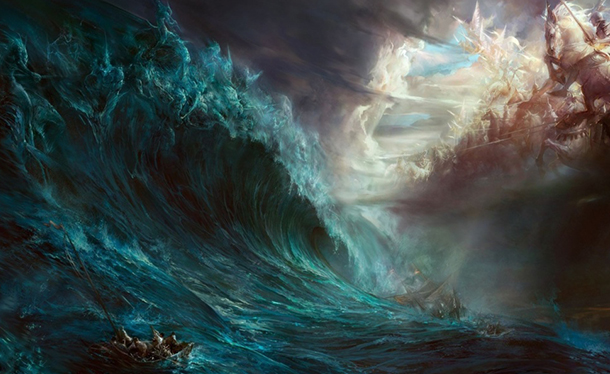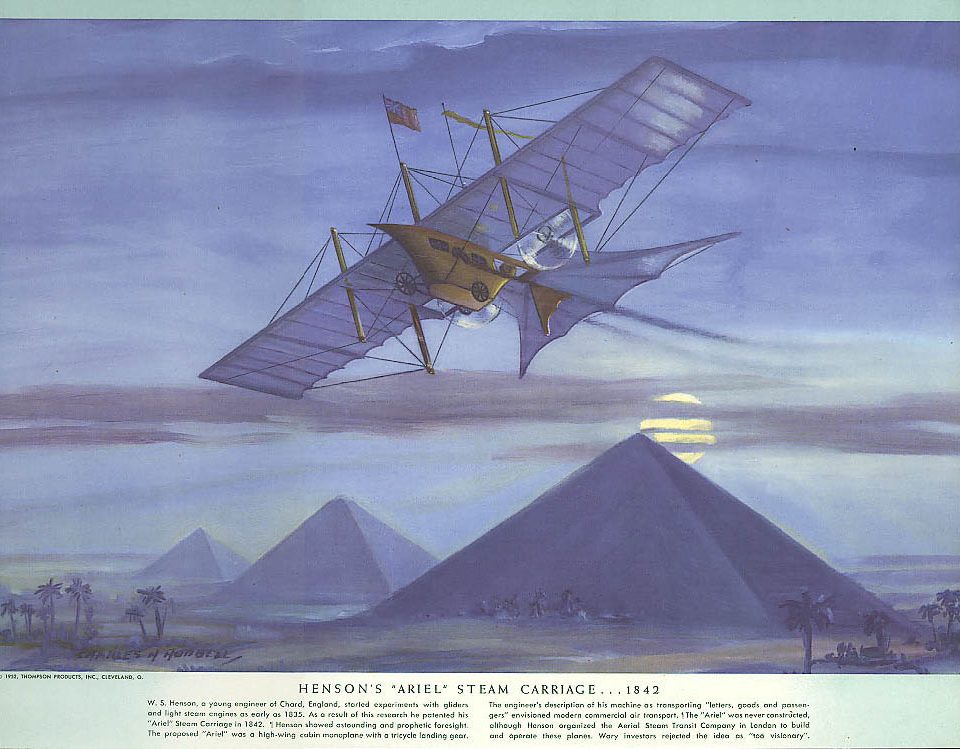
THE ALAMO
September 18, 2012
THE SALEM WITCH “TRIALS”
October 31, 20122750 B.C.E. : The Epic of Gilgamesh
What is a Gilgamesh and why do I care, you ask?
Well, Gilgamesh is, in my dictionary, another word for Epic-Fail!
More specifically, Gilgamesh is an Epic about Failure.
Gilgamesh himself might be ancient mythology’s biggest failure and it’s not because of his name, it’s also not necessarily because you may not know who he is, or the fact that history itself completely forgot who in the hell he was. After all, the ancient Egyptians knew him, the Greeks knew of him, and he probably sued the Jews for plagiarism (more on that to come). The reason Gilgamesh is such a gigantic f#@% up is because Gilgamesh’s whole story was that one day he decided to go on a quest to find eternal life and guess how that turned out?
Considering the Ancient Sumerians believed the gods were out to kill them, they had a thing for tragic endings. Suffice it to say, Mr. G did not exceed in his mythical quest for longevity, or succeed for that matter, he didn’t even make leeway in his selfish attempt to live forever, he flat out FAILED! Unfortunately for Ponce De Leon, King Arthur, and other seekers of Holy Grails and Fountains of Youth, the moral of this tale wasn’t discovered until the early Nineteenth Century.
Gilgamesh was the hero of an Epic Poem of the same name. It’s a thrilling saga brimming with supernatural forces, adventure, zombies, and tragedy. It was a Babylonian myth that originated in Mesopotamia, “The Land Between the Rivers”, also known as: modern-day Iraq.
The Story Behind The Myth
Gilgamesh, the legendary King, may have been a semi-historic figure, who reigned in aprox 2750 BCE, however much more is known about the legend of the Uruk King: The Epic poem of Gilgamesh the Great, which chronicles his futile search for immortality. Literally the only thing we know for a fact about the real Gilgamesh is that the King of Uruk built a wall… everything else is probably bull.
It’s really kind of surprising Gilgamesh hasn’t gotten the inaccurate summer blockbuster adaptation treatment yet. It’s got action, adventure, sex, and zombies! I can see it now: Gerard Butler shouting, “I AM GILGAMESH!!!”
Most people only know Gilgamesh from that one episode of Star Trek: The Next Generation (‘Darmok’) where Jean Luc Picard is stranded on a dangerous planet without any tech, and is attempting to communicate with an alien being who speaks in metaphor. Regardless, it’s an important piece of human history, even if it’s a fictional tale. The story of Gilgamesh is perhaps the oldest, most complete work of human fiction in all of literature. The story’s origins come from one of the earliest civilization on Earth, the ancient Sumerians of Mesopotamia, in the Fertile Crescent.
First a couple things you ought to know about the ancient Sumerian culture: they were so paranoid that they believed that if they didn’t appease their ancestors they’d rise from the grave, and eat their brains… yes that’s correct, they invented the notion of ZOMBIES!!!
Not only that, but they actually believed that the gods were out to DESTROY them! And can’t really blame them, they may have had a point, especially considering the ‘Fertile’ Crescent wasn’t all that fertile, in fact it was barely an oasis surrounded by miles of desert in all direction, with nomadic invaders on all sides. This vulnerable geographic topography and erratic climate led to a general mood of fear and insecurity. Unlike the ancient Egyptians with their reliable Nile River, Mesopotamia was constantly dealing with severe natural disasters, primarily flooding from the Tigris and Euphrates rivers.
Evidence suggests that the Sumerians were the first official society, they were among the first tribes to figure out how to plant seeds, settle down, and build stuff. They established a city infrastructure, created mathematics, and invented the wheel. As far as we know, the Sumerians invented the written word. They cobbled together this form of indecipherable chicken scratch on stone tablets and called it a language, what we today refer to as Cuneiform. To this day archaeologists still have no fucking clue what any of them actually say. However, the Babylonians ‘borrowed’ their legends, and that is where we’ve recovered the oldest incarnations of this Epic poem.
A few things worth noting about the writing style: a lot of lines are repeated throughout, this can get really annoying after a while, but it’s understandable in a way when you consider that these stories were often told orally, the repetition helped the story tellers since they didn’t have a script to go by. The modern equivalent would be like a Marvel comic book where every single time The HULK makes an appearance there’d be the narration of: ‘The Incredible Hulk, the green goliath who smashes things…’, like in case we forgot who the Hulk is and what he does, which is Smash!
Also, Gilgamesh himself often speaks out-loud… to himself… constantly… about everything he does, and intends to do, as if the wheat fields care about his inner thoughts and feelings. Mind you, this is prior to the invention of the convenient thought bubbles employed to narrate ones inner thoughts. It’d be one thing if he was thinking to himself, but no, it’s made clear that he says what he’s thinking, and what he’s thinking is the entire narration of the story in which he is a part.
Backstory: The Great Flood
According to Sumerian mythology, Anu, the god of heaven retired and handed the job over to his son Enlil, god of the weather, whom despised humanity and vowed to annihilate them/us. However, his brother Ea, the god of water and wisdom, had created those pesky sentient creatures in the first place, and so thought they might be worth sparing. So when the council of the gods decided to kill the humans, and start over from scratch, it was Ea who spared them from the Great Deluge.
 Why did Enlil want to destroy the human race?
Why did Enlil want to destroy the human race?
Because they caused too much noise, and cost him sleep… not kidding, that’s what was translated.
So Ea came to this wise guy named Utnapishtim in the middle of the night, and instructed him to build a gigantic boat, he gave him the blueprints, and told him to gather up every species on the planet, because a flood was coming that would wash away the old world. Utna’ did so, and survived the flood, along with his family. They sent out three birds to search for land, and eventually the waters receded, and they eventually landed atop a mountain. The ancient gods came to a consensus and decided not to exterminate the remainder of the species… yet.
Wait a minute! I’ve heard this story before……………
One of the most fascinating things about the discovery of the Gilgamesh legend is that it becomes very apparent that this story contains a very suspiciously similar account of a massive flood in ancient times that was apparently later modified to fit into the Bible. That’s right folks, the Original Version of Noah and his Ark is in fact weaved into the legend of Gilgamesh.
In fact very few minor details are different between the tale of Noah and Utnapishtim: One God, rather than plural; the arks in each were similar in dimensions, except Noah’s was rectangular; Utna claims that the global flood was six days and seven nights, rather than forty; Utna sent out a dove, a swallow and a raven, rather than a raven and two doves (the first two didn’t return in both cases); both ships landed on a mountain, but according to the Bible it was Mount Ararat, while the Babylonian/Sumerian ark landed at Mount Nasir. Both mountains are only a few hundred miles apart. Coincidence?
Genesis, the first book of the Hebrew Bible / Old Testament was compiled together in somewhere between 586-539 B.C.E., whereas Gilgamesh is at least two-thousand years older than that, from the Third Millennium, BCE. However, it is said that Moses, the Prince of Egypt, first recorded the ancient stories of the first five biblical texts (The Torah) way back in 1600 BCE, (still not nearly as old as Gilgamesh) but those original drafts were never found, and would’ve been either recorded in Egyptian hieroglyphics or in a written language that has been lost to time. Meaning that what we have of Genesis is in fact word of mouth from over two-thousand years. I don’t know about you, but I wouldn’t trust the so-called ‘facts’ that came about after a game of telephone that lasted two millennia.
Either way, the ancient Babylonian tablets describing the legends of Gilgamesh are, without a doubt, far older than the Bible, and were written way before even the time of Moses for that matter. That doesn’t however mean that there isn’t something to the Hebrew version of the tale, after all maybe Noah WAS Utnapishtim, and some of the details just got lost to mistranslation and cultural meanings.

You know, like that one episode of TNG.
As it turns out there are many other ancient cultures with their own takes on some great historical flood, like the ‘Book of Enoch’, an Aramic description of the Epic flood found among the ‘Dead Sea Scrolls’: “all the foundations of the earth trembled…and all the abysses overflowed with mighty waters…” Many scholars believe that there could’ve been a great flood isolated to that region. Perhaps we’ll never truly know.
What we do know is that the Epic of Gilgamesh was a long, narrative poem that predated the epic poems of Homer, at least a thousand years older than ‘The Iliad’ and ‘The Odyssey’ and as mentioned, without a doubt chronologically precedes the Hebrew Bible itself. The tales of Gilgamesh were fragmented into stories across various cultures around the ancient world, and may have been a prototype for the heroic legend of Hercules.
Like Beowulf, and other epic poems, Gilgamesh was orally recited centuries before being recorded, sometime during the later half of the Third Millennium BC. The Ninevah Library, which contained the most complete collection of the Gilgamesh Epic was discovered by Austen Henry Layard, a young Englishman, in 1839 from the buried palace ruins of the Assyrian Capitol, Nineveh, where among thousands of broken tablets, the epic of Gilgamesh was discovered. The most complete translation discovered comes from twelve Akkadian tablets, translated from Babylonian text.
The Story Itself
Gilgamesh is an epic about humanity’s struggle against death itself, but it is also about a man, a mysterious ruler of a forgotten time. There have been hundreds of different remakes and rip-offs found throughout the ages, but basically the legend goes something like this:
There’s this dude, his name is Gilgamesh, he’s not only part god, but specifically ‘two-thirds’ demi-god (scratches head in confusion). This guy is jacked like a lumberjack, and imposingly tall. Think Arnold Schwarzenegger meets Shaq, with an epic beard that would make Lincoln envious. This beefy, two/thirds God-King was the epitome of manliness. This rock-chewing, forehead-smashing, ancient badass was also a colossal douche-nozzle when it came to politics. Gilgamesh was a hero whose arrogance was only exceeded by his vain drive for fame. He became a King of man, but was kind of an ass, that is until he met his match in this other righteous dude, Enkidu…
The Gods got together and decided that whats-his-face-puny-human is being an arrogant dick, so they sent Enkidu to assassinate him, because Gilgamesh was just too awesome. Enkidu was a wild-man, sporting a mane of gnarled carpet that would scare a Wookie, the savage beast-man was the only one who’d even dare to challenge Gilgamesh to an arm-wrestling match, or a thumb-war for that matter.
This chapter begins with the wild-man being tamed by one of Ishtar’s harlots in a rather sexually explicit encounter. The prostitute then convinces Enkidu that he’s the only one capable of challenging the great Gilgamesh.
In response he replies, quote, “Come, woman, and take me to that holy temple, to the house of Anu and of Ishtar, and to the place where Gilgamesh lords it over the people. I will challenge him boldly, I will cry out aloud in Uruk, ‘I am the strongest here, I have come to change the old order, I am he who was born in the hills, I am he who is strongest of all!’”
Then he does precisely that, he kicks in the gates of Uruk at high noon, and goes up to Gilgamesh calling him out in the streets, “I have come to challenge the old order, for I am the strongest here!”
‘Enkidu stepped out, he stood in the street and blocked the way. Mighty Gilgamesh came on and Enkidu met him at the gate. He put out his foot and prevented Gilgamesh from entering the house, so they grappled, holding each other like bulls. They broke the doorposts, and the walls shook, they snorted like bulls locked together. They shattered the doorposts and the walls shook.’
Gilgamesh had met his match in the grass-munching hippy, Enkidu. The two battled for days, beating the shit out of each other, leveling the city of Uruk, and causing tectonic plates to shift across the globe, …until, after brawling through the streets, they became best buds.
Wait…. WHAT?!
‘Gilgamesh bent his knee with his foot planted on the ground and with a turn Enkidu was thrown. Then immediately his fury died …So Enkidu and Gilgamesh embraced and their friendship was sealed.’
In the next part of the story Gilgamesh suddenly proclaims at random, “Now we must travel to the Cedar Forest where the fierce monster Humbaba lives. We must kill him and drive out evil from the world.” This section is reminiscent of Dante’s travels through the Dark Woods in ‘the Inferno’ and the creature is comparable to Grendel from ‘Beowulf’. Humbaba, or Khumbabu, is a monster who was chosen by the sun god, Shamash, to protect the forest from man.
Gilgamesh orders his armory to forge him a 9 pound battle axe by the name of ‘The Might of Heroes’, two massive swords, and a bow that would make Legolas jealous. So G-dawg and Enki-dude travel to the Cedar forest and square off against this monstrous fire-breathing beast. Gilgamesh easily defeats Humbaba, who then pleads for his life. However, Enkidu goads him into finishing him off, so they lob his head off, and mail it to Enlil just to piss him off.
After the duo defeats the guardian of the woods they cut down the trees in the forest that he once protected with little regard for the ecosystem. It would seem that this is both a cautionary tale and a reference to the fact that the historical King Gilgamesh really was known for bringing unprecedented amounts of Cedar wood from the north.
Gilgamesh and Enkidu: the two had a bromance that would rock the ancient world. In fact when a literal goddess, Ishtar, gives Gilgamesh her number, he ditches her for a legendary night of foosball and excessive inebriation with his best bud, Enki. Unfortunately Ishtar was the goddess of love And WAR! Ishtar, or Inannu, was not one to be trifled with. “Hell hath no fury” and all that jazz. People gave offerings to her to make her happy, for fear of being incinerated once a month…
According to Sumerian mythology, Ishtar’s sister Ereshkigal ruled the Underworld. Ishtar being the jealous brat she was decided she was entitled to rule over men’s souls long after they perished as well. The two fought, but Ishtar lost, and so had to find a mortal person to take her place in the land of the dead. Ishtar went back up to the surface, and finds one of her many husbands throwing a party, and catches him cheating, so she grabs him by the balls, and drags him down to the underworld as an offering for her sister. The two decide to share him, during different parts of the year. And so seasons were born. The Greeks later adapted this tale as their own and is now known as the Hades /Persephone myth.
So yeah, where was I, oh yeah: one day G-dawg and his sidekick were shooting the shit and kicking ass when Ishtar, the Queen Goddess of Love and War, shows up and basically proposes to Gilgamesh. However, Gilga’ was a firm believer in the first rule of Barney Stinson’s ‘Bro-Code’: “Bros before hoes”, and was more than familiar with how she treated the poor shucks who were seduced by her ginormous bosom. She even offers him a sweet golden chariot, but he doesn’t just blow her off, he rejects her like a kid does vegetables.
‘Gilgamesh opened his mouth and answered glorious Ishtar, “If I take you in marriage, what gifts can I give in return? What ointments and clothing for your body? I would gladly give you bread and all sorts of food fit for a god… but as for making you my wife – that I will not. How would it go with me? Your lovers have found you like a brazier which smolders in the cold, a backdoor which keeps out neither squall of wind nor storm, a castle which crushes the garrison, pitch that blackens the bearer, a water-skin that chafes the carrier, a stone which falls from the parapet, a battering-ram turned back from the enemy, a sandal that trips the wearer…”
Damn bro that’s harsh! (Oh it gets worse…)
“Which of your lovers did you ever love for ever? What shepherd of yours has pleased you for all time? Listen to me while I tell the tale of your lovers…” He then recounts every single one in full-detail. When Gilgamesh dumps you, he does it with malice, that’s just how he rolls, doesn’t matter if you are a goddess.
Suffice it to say this goes on for a few more paragraphs…
After he spurns her advances Ishtar stomps away like a petulant child who can’t get her way, so goes to her daddy, Anu, and demands that he do something about it, or else… “I will break in the doors of hell and smash the bolts; there will be confusion of people, those above with those form the lower depths. I shall bring up the dead to eat food like the living; and the hosts of dead will outnumber the living.” Ishtar threatens to unleash Hell on Earth (or the T-Virus) unless Anu sends ‘the Bull of Heaven’ to destroy the Uruk King once and for all. Anu sighs, and concedes to his bratty daughter by unleashing the Bull on Earth.
The Bull of Heaven was wrecking shit up and down the country side, so the two heroes team up once again to take on this threat, but in the end Enkidu is fatally wounded and falls mortally ill. Enkidu randomly gets killed by some Bull-shit/Ex-Machina/plot-device/monster. Gilgamesh promptly spends the rest of the story attempting to find a way to bring his friend back to life, which of course is impossible, leading to the most predictable moral of a story ever: when you’re dead, you’re dead, end of story… with the possible exception of Rasputin.
Following Enki’s tragic death, Gilgamesh spends the the entirety of Tablet VIII lamenting his bro’s demise.
This is the catalyst that leads the grief stricken hero to contemplate his own mortality and decides he must find the secret to eternal life. During his journey around the world he encounters a Man-Scorpion, he travels through the wilderness and across the Waters of Death to Dilmun, an island paradise (not unlike the Garden of Eden), where Gilgamesh finally comes face-to-face with the hero of the flood legend: Utnapishtim, who survived Enlil’s wrath and was granted everlasting life. Utna tells Gilgamesh of a mystical bush hidden under the ocean. Gilgamesh does succeed in recovering the spiny flower that turns old men young, “this marvelous plant, the antidote to the fear of death.”
Although Gilgamesh is able to retrieve this sacred plant from the bottom of the sea, when he isn’t looking, a goddamn serpent scarfs it down for brunch, and the secret to immortality is lost forever once again, thanks to a mother fucking snake! (see: Adam and Eve) FAIL! Gilgamesh returns home in despair after failing in his obsessive search for eternal life, but after his journey he is a wiser man who decides to dedicate his final days to the people of his city.
According to the Eleventh Tablet often referred to as ‘the Death of Gilgamesh’, the Gods reserved immortality for themselves, and since Gilgamesh (like Socrates) was a man: he was mortal. Since he failed to obtain immortality and was destined to die like everyone else, despite the extensive qualifications in his resume of badass-ery.
The Epic of Gilgamesh gives us insight into an early chapter in human history. Like other heroes and anti-heroes to follow, Gilgamesh was determined to control and understand the unknown. We may never truly know just how much Gilgamesh resembled his fictional alter-ego, but even though the great hero of the epic failed in his attempt to live forever, his name will live on in infamy.
The Sumerians were eventually overthrown by the Akkadians who gave way to the conquest of the Babylonians, who were in turn overthrown by the Assyrians who were then re-conquered by the Babylonians who were likewise evicted by the Persians.
Erik Slader
Hope you enjoyed this edition of “Epik Fails!”, if you have any comments, questions, concerns, or suggestions let me know in the comments below! Also, be sure to ’Like’ EPiK FAILs on Facebook! (www.Facebook.com/EpikFails), and SHARE IT with your friends!
Click for a Complete List of Essays on Historical Failure!!
—–Click Here For: THE EPIC (fail) OF TROY!
—————————–Greek / Roman Mythology 101
—–Sources:
“The Epic of Gilgamesh” by: Anonymous
“Gilgamesh: A New English Version” by Stephen Mitchell
“Noah’s Flood and the Deluge of Gilgamesh” by E.A. Wallis Budge
“Babylon: Moesopotamia and the Birth of Civilization” by Paul Kriwaczek
“The Sumerians” by Samuel Noah Kramer
http://readingsinepic.blogspot.com/2011/10/epic-of-gilgamesh.html
http://www.crimonia.com/goutline.htm
http://noreligionblog.wordpress.com/2010/02/23/gilgamesh-vs-noah/

























12 Comments
I would like to thnkx for the efforts you’ve put in writing this site. I’m hoping the same high-grade web site post from you in the upcoming also. Actually your creative writing abilities has encouraged me to get my own website now. Really the blogging is spreading its wings quickly. Your write up is a great example of it.
Thanks! Make sure to subscribe and Like it on Facebook!
[…] GILGAMESH?! […]
I just want to tell you that I am just beginner to blogs and actually liked your web blog. Probably I’m going to bookmark your blog post . You certainly have fabulous stories. Cheers for sharing with us your web page.
[…] –Check out: GILGAMESH!!! […]
[…] The Epic of Gilgamesh! for […]
[…] the footsteps of Gilgamesh, Qin Shi Huangdi decided he was so kickass that he should live forever. This conquest of death […]
Wow, that was funny as hell and I even learned something…Although I doubt Hollywood could do a better job at this story than you did;)
Wow, thanks man! I really enjoy your material as well! 😀
[…] covered elsewhere on the site. (see previous articles: History of the Holidays, Creation Myths, Gilgamesh, Ramses II, Emperor Nero, and the Council of […]
[…] ——Gilgamesh and the Great Flood […]
[…] Gilgamesh and the Great Flood […]